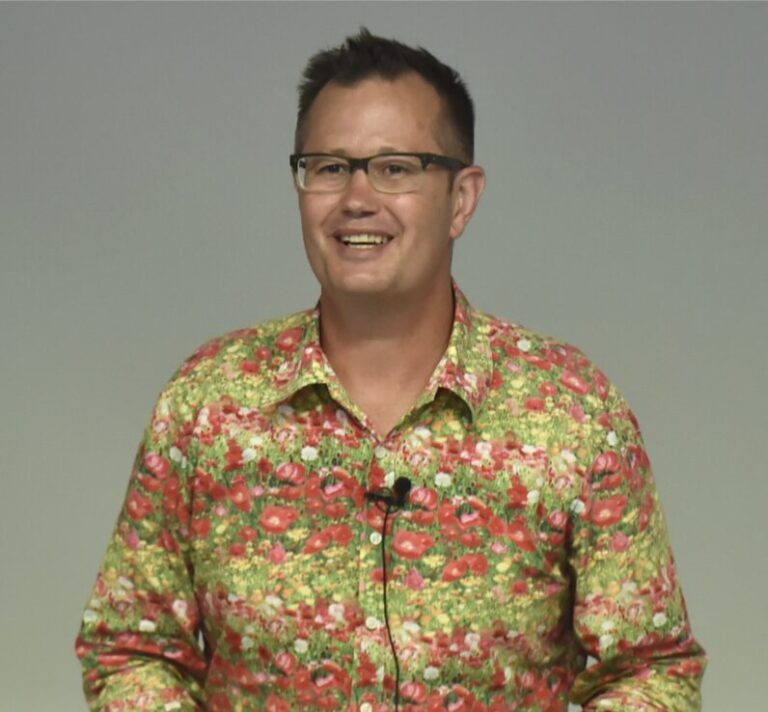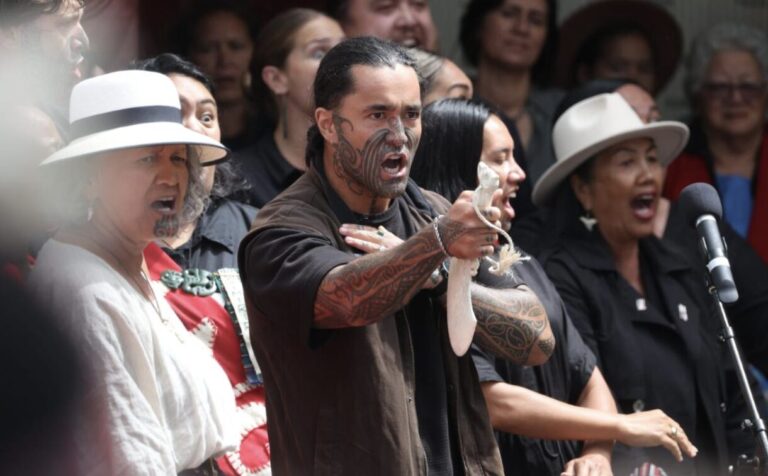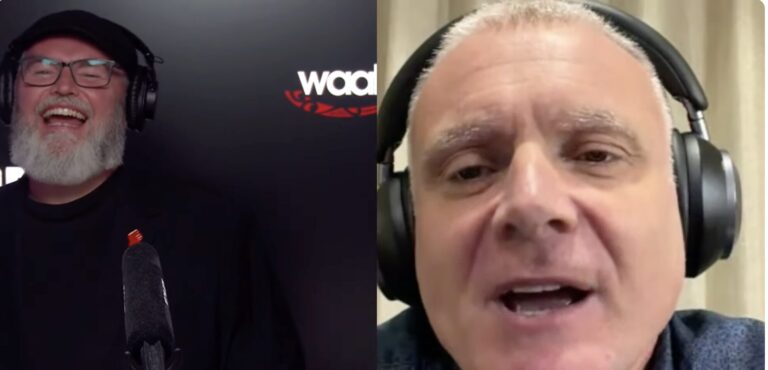Analysing National’s Education Policy
What is it with the National Party and education? Every election cycle they bring out the old ‘3Rs’ (once this was Reading, (W)riting and (A)rithmetic. The clothes are different but the underlying theme of ‘return to basics’ (another catch phrase from the past) is the same. Not mentioned this time (yet) is the other old chestnut of performance pay – the proposal to pay the best teachers more than their peers. For many reasons this not a starter; however evidence never stopped the right and I doubt it will this time. Watch this space.
In the meantime, this video of Te Tai Tokerau principal Pat Newman says it all about politicians (National and ACT especially, but not exclusively) interfering in education, doing nothing more than very clearly demonstrating their total ignorance.
This link goes to Facebook, and if this doesn’t work for you, the video can be downloaded from here.
It is well worth watching, Pat doesn’t hold back and is very entertaining. He more than adequately covers all the criticisms of National’s education crap.
To set the scene, here’s a story from the past that illustrates National’s perpetual lack of knowledge and understanding of education, and how they persist in using education scare tactics to win votes.
Way back in 1999, when the National Government of the time (the Education Minister was the very unlovely Dr Nick Smith) was facing the prospect of a defeat in the coming general election, it was decided to use education (surprise, surprise) as a vote winning ploy. Nothing changes, does it?
To make life extra interesting, it was also apparently decided that to draw public attention to this, primary school teachers would need to be provoked into protest.
After all, everyone knows that parents never support teachers and will also support right wing politicians, (and some on the so-called left e.g Phil Goff when he was Minister of Education in 1989), when they go on the attack against teachers for vote winning purposes…
As I remember it, events unfolded as follows:
Dr Smith was due to make a speech at the 1999 Annual Meeting of the NZEI (primary teachers’ union) as is the norm for Ministers of Education. The NZEI President was tipped off that Smith was going to attack primary teachers, with assembled TV media on hand to record the reaction for that night’s news. Meeting delegates were carefully prepared about how to react to this, and to not respond in any way to any provocation. As things were to turn out, this was a wise precaution.
Smith duly arrived, was politely welcomed to the stage and then he started. Within moments he told the assembled delegates that New Zealand primary teachers were not good enough, that because of this New Zealand children were failing, and that something had to be done.
Does this sound familiar?
The answer, naturally, was to establish a national testing regime where children would be tested twice a year on their abilities in Reading, Writing and Mathematics.
Hmm, where have we heard this recently?
He went on to attack the leadership of the NZEI and accused the president of committing educational treason by critiquing the National Government’s educational policies at overseas forums. At this point he paused, no doubt hoping for the room to explode in protest.
Oh dear, how disappointed he was, as apart from a very gentle murmur, there wasn’t a sound. He was clearly rattled by the failure of his plans to provide a media worthy uproar and quickly rattled through the rest of his speech, to a silent and non-responsive audience. He was briefly thanked by the president, albeit with a curt remark about the educational treason comment.
Smith then left the room in total silence, accompanied by the media, having clearly not achieved his goal of inflaming a newsworthy outbreak of anger from the assembled delegates, which the government would have used to kick start their teacher and education bashing programme for the coming election.
Smith in his attacks overlooked one major thing. By 1989 National had been in government for 9 years and so any failures in education could only be laid directly at their door.
However, as National lost the election, this national testing policy was left in limbo. It didn’t die, though, just metamorphosed into a different variant. By 2008, it was clear that a change of government was likely and that National would lead the next government.
So what do we find?
Claims that New Zealand students were failing in literacy and numeracy, (in other words, Reading, Writing, and Mathematics) and that parents were not being provided with clear information about their child/ren’s achievement/failures. The solution to this, of course, was defined national standards of achievement in literacy and numeracy and set criteria on reporting to parents.
This time, National was able to implement their plans, in spite of widespread and vigorous objection from Boards of Trustees, many education academics, principals and teachers. Boards of Trustees from hundreds of primary schools were involved in an organisation called Boards Taking Action Coalition that was set up to battle for children’s education.
BTACC was met with heavy handed resistance from the Ministry of Education, using the Godfather principle of holding a gun to someone’s head and making them an offer they can’t refuse. In the end, in spite of their strongly held, evidenced based views that national standards would be detrimental to children’s education, all these schools were left with no option but to comply.
To bring the discussion back to 2023, let’s look at a statement from Luxon:
“15-year-olds in New Zealand today perform worse in science and reading tests than 15-year-olds did 20 years ago. In fact, the average 15-year-old today is nine months behind where the average 15-year-old was two decades ago for science and reading. In maths, they are one and a half years behind.”
Hey, Christopher, a National led government was in office from 2008 to 2017, and this was the time when their solution to so-called poor education outcomes was National Standards, ranking children on their achievement against defined standards in, wait for it, Reading, Writing, and Mathematics.
Children who were unfortunate enough to start school in this time are now in the middle years of their secondary education and their results are represented in Luxon’s statement.
Sorry, Christopher, you are looking in the wrong place. As coming articles will show, it’s not teachers or the curriculum that has caused poor student achievement, the National and ACT interference in education, using ideology instead of evidence, for the sake of winning votes is where the blame lies.






Perhaps we need to abandon the whole competition between schools thing, and start co-operating. Otherwise we will get the same results over and over,.
Luxon’s statement,’In fact, the average 15-year-old today is nine months behind where the average 15-year-old was two decades ago for science and reading. In maths, they are one and a half years behind.” is absolute nonsense.Anyone who makes these measures and anyone who thinks this is factual has no idea of education or educational assessment procedures. God he’s too dumb to be a PM.
I remember the good old days of phonics and rote learning – and a designed 50% failure rate in 5th form.
Also as a teacher at a school with a meal programme I can testify to the difference a full belly makes to a kids education.
Commenters on this blog keep requesting for links to the citations/evidence. Alan is there a fact-check link to show Luxon was wrong?
Luxon said, “15-year-olds in New Zealand today perform worse in science and reading tests than 15-year-olds did 20 years ago. In fact, the average 15-year-old today is nine months behind where the average 15-year-old was two decades ago for science and reading. In maths, they are one and a half years behind.”
Alan said this is because “a National-led government was in office from 2008 to 2017” and required “National Standards, ranking children on their achievement against defined standards in, wait for it, Reading, Writing, and Mathematics”
So is the falling achievement due to a more accurate measurement of achievement? Or measuring achievement nationally instead of formerly softly in some regions or schools and more hardcore in others. Or because teachers spending a bit of time measuring achievement twice a year takes away from teaching time? Or covid? Or truancy?
New Zealand is a richer country than 15 or 30 years ago and more money is being spent on education for a worse outcome? Has what used to work been broken? Education gone woke now it’s broke?
That was a fun story about Nick Smith but no reasons or solutions were put forward as to why educationalists are turning out less educated school leavers than they used to. Looking forward to future articles.
he end result of Nats right wing education policy occuring in UK now:
https://schoolsweek.co.uk/heads-say-enough-is-enough-in-ofsteds-week-of-reckoning/
The reasons behind poor student achievement in literacy are surely complex. Numeracy also. Comparison with other OECD countries aside, re literacy in particular, take your pick:
– neurodiversity in the classroom
– in some parts of NZ, kids with different linguistic backgrounds
– socioeconomic backgrounds
– the role of parents in the home- some parents actually talk to their kids (other than simply giving directives), familiarize their kids with print literacy and talk around the stories, you know, the old storytime at bedtime. In these home environments kids are surrounded by books are are socialized into the habit
– the incursion of mobile digital technology into the home, which challenges traditional notions of what reading and writing is
– and ensuring that 21st Century literacies are visible in the classroom, as its this that kids are now used to
– teachers that are too busy to focus on individual differences
– yes, phonics has a role for some students but less those who are already socialized into reading practices when they come to school socialized. Its not a one size fits all approach
– I dare say, some teachers who are not sure what they’re doing, in part, because of their training
– curriculum content? Well, it needs to capture students’ attention for one and that’s not easy in a diverse classroom. Again one size doesn’t fit all.
A combination of these and more?
The low lying fruit is measurement, as if what can be counted is what counts. And as we all know politics is all about picking the low lying fruit.
Your comments about parenting says it better than mine .
So much is said about child poverty and how to solve it but teachers have to go on strike to get a decent pay offer that with keep the teachers we have and attract more when education is the only way to break the cycle.
I forgot that one, child poverty; having children arrive at school properly fed, warm, and ready to learn goes a long way towards closing the gap. It is still a gap, isn’t it? It was a few years back. But now repackaged. Yes, many teachers are clearly feeling undervalued and unsupported and the conditions that many work under is far too stressful; having them burn out or leave is not going to help.
The trouble with National is they believe their own shite and they use quotes from individuals but don’t give much detail, just enough to justify their so-called policy changes. They are bereft of new policy ideas, and this is evident with their so called, back to basics education policy. National have a tendency to rehash old policies with a tweak here and there and this is simply not good enough especially with something as important as education. We are living in different times with social media influence, a global covid pandemic, a war effecting the world, high inflation and environmental disasters on the rise. This is not a time for tinkering we need good evidence-based policy. Some NZers are hurting, and some are homeless, sick and have lost everything. We need to stick together and work together for the benefit of all NZers.
Poor student achievement is due to poor parenting and under resourced teachers.This us not a right left thing it is not listening to those that know .
Not so much ‘poor’ parenting Trevor but not engaging with literacy and numeracy in the home. Kids do better when socialized into the practice and the sooner the better. Pre-school the old story- time before bed. When they start school they already have an interest in reading and is makes the school teaching easier. And and home, kids surrounded by the printed text that parents regularly engage with, and talk about. Trouble is printed texts are disappearing. My dad read the newspaper every night, not an educated man in the traditionally sense, but that’s what of folk did back then. Talking about something you have read is all part of literacy, and talking to a child about something that is of interest to them all helps. It doesn’t even need to be printed text, a doco on animals on TV. Not what most would consider ‘literacy’ but talking about stuff to kids helps.
Maybe it is poor parenting after all Trev, many parents perhaps don’t have a lot of time for their kids at home, not that they don’t love them, just flat out paying the bills and putting food on the table I don’t have a window into peoples homes but I imagine very little reading gets done in many homes, other than on social media sites. And that of course raises the issue of what is literacy in the 21st Cent.
And what about poor parents who is that due to Trev?